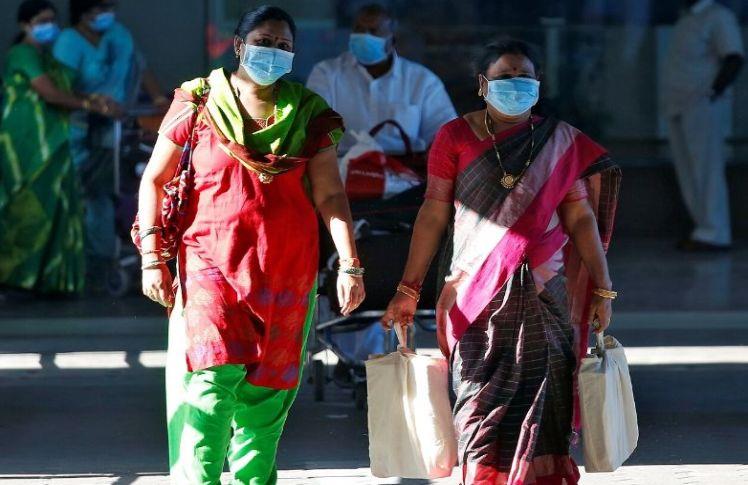
Since the December 2019 novel coronavirus (2019-nCoV) or Covid-19 outbreak in Wuhan, Hubei province, China, thousands of confirmed cases of the infection have been reported worldwide, more than 98% of which are in China alone.
To contain the spread of the disease, China temporarily suspended air, road, and rail travel in and out of Wuhan and neighboring provinces. These restrictions were also placed for airlines based in Hong Kong, Macau, and Taiwan.
The majority of the deaths caused by the epidemic have been in China among all the countries affected by a coronavirus. The first death outside Mainland China occurred in the Philippines soon followed by Hong Kong, Japan, France, and Taiwan.
The new coronavirus — or COVID-19 — has now spread to more than 88 countries, and killed more than 3,000 globally.
Number of new infections decline
China reported a decline in the number of new cases reported for the first time since the outbreak on 18 February. The number of recovered patients at 1,824 surpassed the number of new confirmed cases at 1,749.
For the first time since the outbreak, new cases reported in China on 26 February were lower than those reported outside the country.
How China is responding to the novel coronavirus outbreak
1. China has taken immediate measures to contain the spread of the virus and provide diagnosis and treatment in-time to reduce the impact.
2. Anticipating huge passenger movements on the occasion of the Spring Festival, China closed the outbound traffic from Wuhan, on 25 January, at a time when the coronavirus spread was anticipated to intensify.
3. Screening was started at most airports with flights arriving from Wuhan and other affected areas to admit passengers with associated symptoms for observation, diagnosis, and care.
4. A new 1,000-bed hospital, named Huoshenshan hospital, was completed in a record ten days to provide enhanced care and treatment to coronavirus patients. The new makeshift hospital was opened for admitting patients on 03 February.
What's happening in India
With a new confirmed case in Delhi (resident of Uttam Nagar), the total number of people infected by coronavirus in India has gone up to thirty-one.
Yesterday, infection was detected in 13 Italian nationals who were part of a travel group to Jaipur. In another instance, a Paytm employee in Gurugram also tested positive. Earlier in the week, two more people had tested positive, one from the national capital, and the other a Bengaluru techie in Telangana.
Tech giant Intel has also said one of its employees in Bengaluru has "potentially been exposed" to coronavirus and is currently under quarantine.
How India is responding to the novel coronavirus outbreak
1. Passengers from 12 countries are being screened, including those from Kathmandu, Indonesia, Vietnam and Malaysia.
2. India has imposed "some restrictions" on the export of certain medical equipment to China in view of their shortage of supply in the country, and the precautions taken are in accordance with World Health Organisation's (WHO) advisory for the coronavirus outbreak.
3. India also restricted the export of about 26 Active Pharmaceutical Ingredients and formulations including antibiotics, vitamins and hormones like Paracetamol, Tinidazole, Metronidazole, Vitamins B1, B6, B12, hormone progesterone, with immediate effect.
4. Telangana has allocated Rs 100 crore for preventing and containing a possible outbreak. Private hospitals have been given a directive not to delay reporting cases. Three designated hospitals for isolating patients have been set up.
5. Sixteen Indians have tested positive for coronavirus test aboard the cruise liner Diamond Princess. The last batch of healthy passengers disembarked and returned to India after the quarantine period ended.
What is happening in Jammu
Jammu and Kashmir has been put on alert to deal with any threat emerging due to Coronavirus, even though no positive case has been found in the Union Territory so far.
1. Two passengers with travel history to Italy and South Korea have been shifted to the quarantine ward at a government medical college hospital here, officials said on Wednesday.
2. Around 200 people have been identified with travel history to Coronavirus-affected countries or those who have had contact with persons from such countries, the officials said.
3. A 100 percent self-declaration at the airports of Jammu and Srinagar will start from Thursday to trace any such person having travel history to the infected countries
4. Checkpoints for passengers traveling by road have been set up at Lakhanpur and Lower Munda (Zig) to identify individuals with travel history to these countries
5.24x7 data control centers have been established at Srinagar and Jammu to receive information on travelers coming from the Coronavirus-affected countries, Principal Secretary, Planning and Information Rohit Kansal said, adding that all suspected cases are being managed through defined protocols.
Furthur Developments
Cabinet Secretary Rajiv Gauba held a meeting with chief secretaries and health secretaries of states and UTs through video conference to review their preparedness to deal with Coronavirus.
The states and UTs have been asked to scrupulously follow the guidelines issued by the Union Health Ministry with regard to surveillance and contact tracing, surveillance at entry points, sample collection, packaging and transport, clinical management protocol and infection prevention and control in healthcare facilities.
The cabinet secretary asked the chief secretaries to review, assess and monitor the arrangements in the states and UTs and ensure adequate quarantine, isolation facilities and equipment are available to deal with suspected or confirmed cases as per the mandated protocol.
Leave a comment: (Your email will not be published)